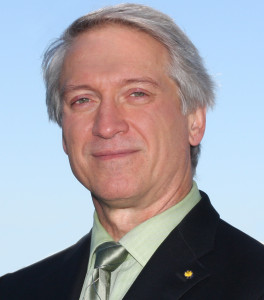Stephen Hinshaw is Professor of Psychology at UC Berkeley, where he was Department Chair from 2004-2011, and Vice Chair of Psychiatry at UC San Francisco. He received his B.A. from Harvard (summa cum laude), and his doctorate in clinical psychology from UCLA. His work focuses on developmental psychopathology. He has directed summer research programs and conducted longitudinal studies for boys and (more recently) for girls with externalizing disorders, having received over $18 million in NIH funding.
Hinshaw has authored over 275 publications plus 10 books, including The Mark of Shame: Stigma of Mental Illness and an Agenda for Change (Oxford, 2007), The Triple Bind: Saving our Teenage Girls from Today’s Pressures (Random House, 2009), and The ADHD Explosion: Myths, Medications, Money, and Today’s Push for Performance (Oxford, 2014).
He is editor of Psychological Bulletin, the most cited journal in psychology, and is a fellow of the Association for Psychological Science, the American Psychological Association, and the American Association for the Advancement of Science (AAAS). He received California’s Distinguished Scientific Contribution in Psychology Award and Berkeley’s Distinguished Teaching Award. His 24-lecture series for the Teaching Company, “Origins of the Human Mind,” was released in 2010.
UC Berkeley Department of Psychology: http://psychology.berkeley.edu/people/stephen-hinshaw
Robert Wood Johnson Foundation Investigator Awards in Health Policy Research: http://investigatorawards.org/investigators/stephen-hinshaw
View CV here
Selected Publications
Hinshaw, S. P. (1999). Psychosocial intervention for childhood ADHD: Etiologic and developmental themes, comorbidity, and integration with pharmacotherapy. In D. Cicchetti & S. L. Toth (Eds.), Rochester Symposium on Developmental Psychopathology (Vol. 9): Developmental approaches to prevention and intervention (pp. 221-270). Rochester, NY: University of Rochester Press.
MTA Cooperative Group. (1999a). Fourteen-month randomized clinical trial of treatment strategies for attention-deficit hyperactivity disorder. Archives of General Psychiatry, 56, 1073-1086.
Hinshaw, S. P., Owens, E. B., Wells, K.C., Kraemer, H.C., Abikoff, H.B., Arnold, L.E., Conners, C. K.,
Elliott, G., Greenhill, L.L., Hechtman, L., Hoza, B., Jensen, P.S., March, J.S., Newcorn, J., Pelham, W.E., Swanson, J.M., Vitiello, B., & Wigal, T. (2000). Family processes and treatment outcome in the MTA: Negative/ineffective parenting practices in relation to multimodal treatment. Journal of Abnormal Child Psychology, 28, 555-568.
Hinshaw, S. P. (2006). Attention-deficit hyperactivity disorder. In P. C. Kendall (Ed.), Child and adolescent therapy: Cognitive-behavioral procedures (3rd ed., pp. 46-68). New York: Guilford.
Hinshaw, S. P. (2007). The mark of shame: Stigma of mental illness and an agenda for change. New York: Oxford University Press.
Hinshaw, S. P., & Stier, A. (2008). Stigma in relation to mental disorders. Annual Review of Clinical Psychology, 4, 269-293.
Scheffler, R. M., Brown, T., Fulton, B., Hinshaw, S. P., Levine, P., & Stone, S. I. (2009). Positive association between ADHD medication use and academic achievement during elementary school. Pediatrics, 123, 1273-1279.
Hinshaw, S. P., Owens, E. B., Zalecki, C., Huggins, S. P., Montenegro-Nevado, A., Schrodek, E., & Swanson, E. N. (2012). Prospective follow-up of girls with attention-deficit hyperactivity disorder into young adulthood: Continuing impairment includes elevated risk for suicide attempts and self-injury. Journal of Consulting and Clinical Psychology, 80, 1041-1051.
Hinshaw, S. P. (2013). Developmental psychopathology as a scientific discipline: Rationale, principles, and recent advances. In T. P. Beauchaine & S. P. Hinshaw (Eds.), Child and adolescent psychopathology (2nd ed., pp. 1-18). Hoboken, NJ: Wiley.

